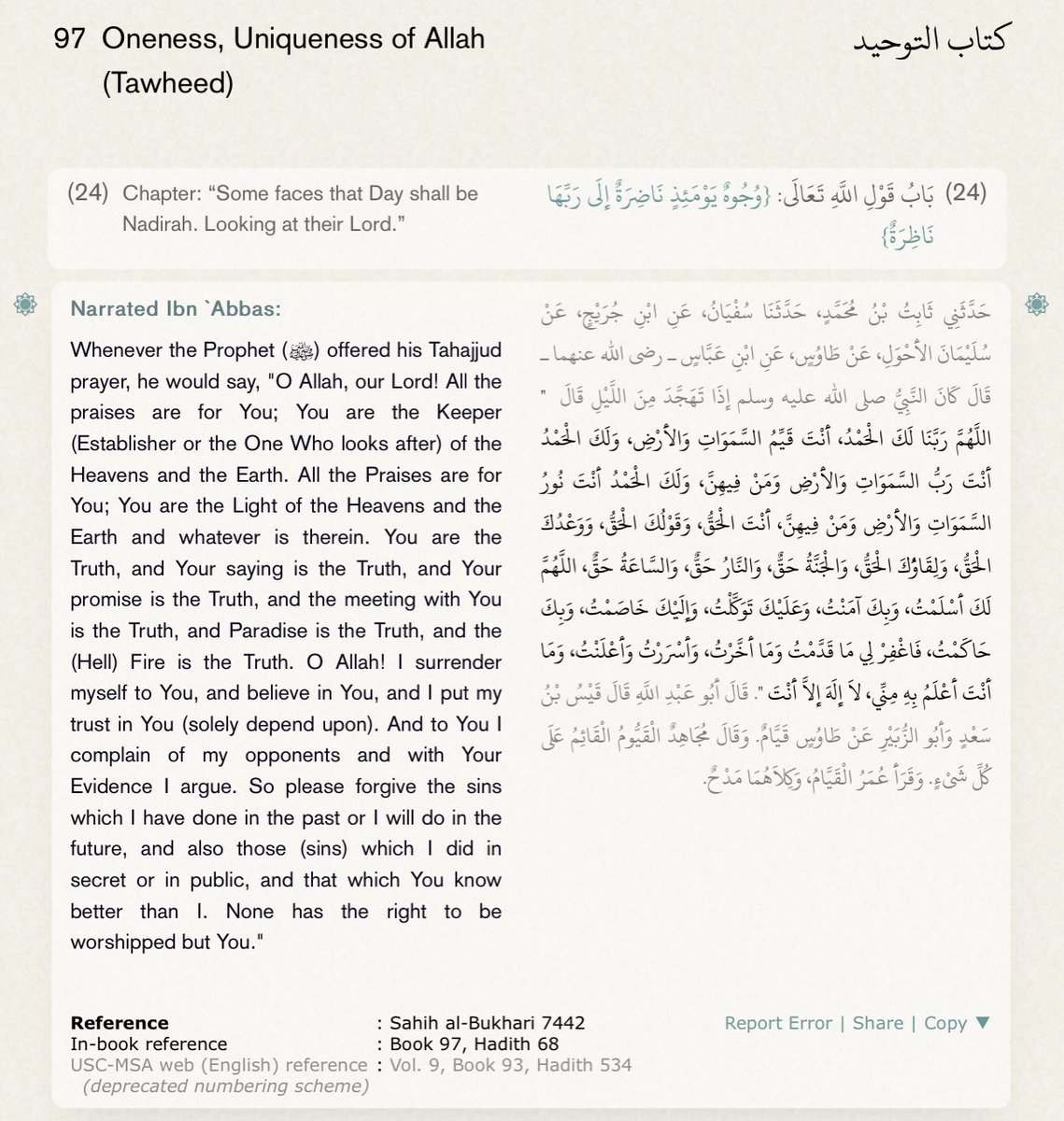
﷽
My Journey with Imam al-Bukhāri
1 In the earliest days of my talab, I began reading the Jāmī’.
I read it from cover to cover with the intent of absorbing and practicing as much of the Sunna as I possibly could. This reading affected me very deeply.
My Journey with Imam al-Bukhāri
1 In the earliest days of my talab, I began reading the Jāmī’.
I read it from cover to cover with the intent of absorbing and practicing as much of the Sunna as I possibly could. This reading affected me very deeply.
2 I have recollection of most of it and until now the ahadīth come back to me, leading my path in so many ways. I was just a beginner then, without the usūli/fiqhī tools to appreciate the genius of Bukhāri on an academic level. I did, however, gain something very special from him
3 There is a Hadīth in which he relates دعاء الاستفتاح for the tahajjud prayer. I think I haven’t found another Hadīth that encompasses as many spiritual meanings as this dua does. I memorized it and then, I recited it at night
When I did this, I felt Imām Bukhāri’s presence…



When I did this, I felt Imām Bukhāri’s presence…




4 I saw a vision of him standing in the night prayer. He was crying profusely. His tears wet the ground. His feet were aching. He stood for a long time. When I saw him this way, I could not hold back my own tears and his love filled my heart in such a way that I cannot describe.
5 When @FarazRabbani asked about our favorite Hadīth, nothing came to mind, as the (established) Sunna is of a beauty that is indivisible in nature فرد غير منقسم
If I had to choose, though, I would pick this because of the one to whom it connected me.
If I had to choose, though, I would pick this because of the one to whom it connected me.
6 In the West, we put great emphasis on sanad as an indicator of authorization to teach, yet I have seen too many who have a sanad yet no proper attribution to scholarship.
The sanad is not a substitute for sincerity and substance.
The sanad is an outward connection…
The sanad is not a substitute for sincerity and substance.
The sanad is an outward connection…
7 Yet, when granted a sanad by a teacher with 65+ chains, some the highest in the world, with 10 between him & Bukhari, he told me that he never considered this to be a proof of anything & never mentions it to anyone This, from a senior scholar who has served for over 30 years.
8 His sanad taught me an important lesson and reminded me of a different sort of sanad that Allah granted me directly to Bukhari, رحمه الله تعالى
Even still, when my teacher granted me the ijāzah, I could not hold back my tears.
This is how women study Hadīth.
Even still, when my teacher granted me the ijāzah, I could not hold back my tears.
This is how women study Hadīth.
9 Dearest female students of Hadīth & especially those who feel pain when the Sunna is breached, don’t accord men/asanīd more than what they are worth. True scholars have a sanad in Allah.
Don’t lament how man act or teach. Rather, say — let us show you how it’s done. 🌹
Don’t lament how man act or teach. Rather, say — let us show you how it’s done. 🌹
اللهم صلِّ صلاة كاملة.. وسلِّم سلامًا تامًا على نبي تنحل به العقد.. وتنفرج به الكرب.. وتقضى به الحوائج.. وتنال به الرغائب وحسن الخواتيم.. ويستسقى الغمام بوجهه الكريم وعلى آله
• • •
Missing some Tweet in this thread? You can try to
force a refresh






